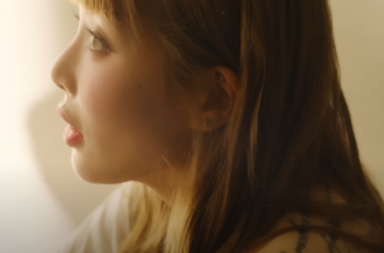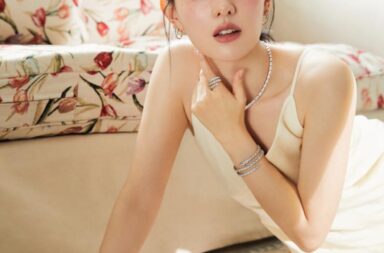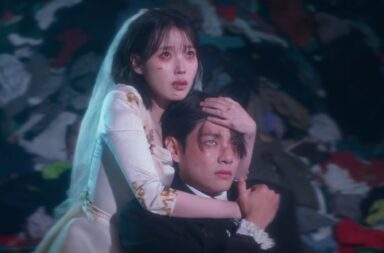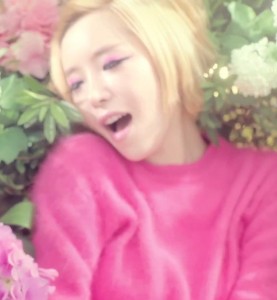
A few days ahead of me, Dana wrote a piece on the differences she identified in how people perceive Ga-in’s sexual statement in “Bloom” and Hyuna’s over-criticized “Bubble Pop.” Her analysis lead to the conclusion Ga-in embodies female sexuality in a healthy, natural way, while her colleague from Cube Entertainment profits from the male gaze to sell some records. While one’s accurate, vivid and easy to empathize with depiction of sexual behavior brings a round of applause, the other one could be looked down upon for taking female sexuality a few steps back. In other words, my fellow writer puts two points of view on the same subject (women’s sexuality) in contrast: a patriarchal, demeaning portrayal and a female-centered principle. It so happens I agree with the major points, but it’s the details that get me worked up.
The main difference between the videos that sets them apart is the subject. Ga-in’s song is about love and alludes to losing her virginity. The lyrics don’t shy away from double entendres and the video presents Ga-in blooming in her relationship, including sexually. She takes pleasure in thinking about and being with him (literally or not). The praise she deserves stems from treating these aspects as natural. It’s how things happen, so why fake it? Hyuna’s MV — not that inspired. The story, the lyrics and the song don’t connect much and her sexy choreography aims to showcase how hot she is, without notions like romance or personal fulfillment. The same way idols do close-up shots to pretify the video, Hyuna squeezes what she can to sexify hers. So where does the problem lie?
For one, sex is a societal taboo and it’s even more of an unspeakable matter in the hands of a female idol. The reactions these girls provoke rise mainly from the impossibility to treat sex just as another normal human side. Had they described a relationship they are in, with one of the relationships dysfunctional, while the other’s healthy, people wouldn’t have given the slightest thought about it. “Irreversible” talks about a woman clinging to a man who keeps humiliating her, begging him to stay by because her life revolves around their love. Sure, it sounds more artistic in the words of Kim Ina (Yina/Eana), but that’s the message and I haven’t seen anyone jump to the conclusion Ga-in makes a statement about women in a relationship. Why? Because sex wasn’t involved.
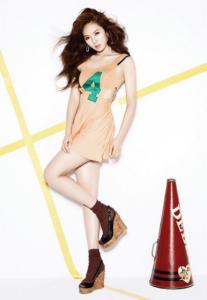
When sex knocks on our monitors, it occupies the entire playground, leaving out anything else. Whether Hyuna’s “Bubble Pop” was a summer anthem or if her way of treating that poor guy was funny and obnoxious don’t even matter. She was sexual. She must be either a whore or the flag-waver of female sexuality. Could this bivalent way of judging them become a beneficial one? If a woman displays sexual behavior, should we take it for the one and only variable?
This is where I beg to differ. By framing Hyuna and Ga-in into a patriarchal mindset where they have only two options — surrendering their sexuality to patriarchal standards or defying them by taking female sexuality into one’s hands — is practically reporting to the already-established norms. Is Hyuna objectified in her video? I doubt this is the right question to ask. It’s the mindset I find detrimental more than her objectification per se.
If a girl shows some skin and people feel then entitled to ogle or even rape her, it’s not the girl who’s at fault, but the mentality which claims once a female is open about her sexuality she somehow intentionally subscribes to become men’s sex instrument. By dressing a certain way or provocatively dancing, a woman doesn’t accept to be stripped by her identity and show only her body. “Bubble Pop” is a summer hit with a funny, daring and rude person as a singer and a clumsy, hot individual as the main character in the video. Why should we reduce everything to her sexual behavior? Does she sell sex? Yes, but together with her whole persona. She certainly doesn’t do anything for female empowerment, but I can’t drag her down the other road either. The prevalent school of thought regarding female sexuality should be contested, not Hyuna or Cube’s actions. I consider Ga-in’s “Bloom” to be a step forward; however, I doubt her predecessors should be blamed for not taking this responsibility upon them.
And after all, how much do we know about these two idols’ view on sex? Nothing. We can’t estimate the level of freedom both have into expressing their own views. They might share the same opinion or not give a rat’s ass on it. Their stage personas and the artist could be and most probably are manufactured characters, by them or by their superiors. In these conditions, when the companies behind them are more or less responsible for their material, meaning music, image and points of view, can anyone of them represent anything for the feminist movement? 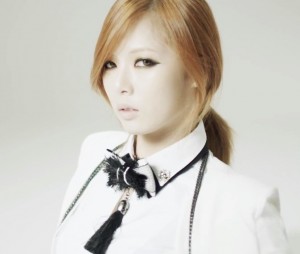 To me, only to a certain extent: they are trademarks. Ga-in and Hyuna are two teams of people, including the real persons, who work for an image and an artistic concept. Their collective efforts speak on their behalf, with only one that takes the actual hits from the public.
To me, only to a certain extent: they are trademarks. Ga-in and Hyuna are two teams of people, including the real persons, who work for an image and an artistic concept. Their collective efforts speak on their behalf, with only one that takes the actual hits from the public.
Getting back to the original discussion, I appreciate Ga-in’s latest effort and I cheer for her. That doesn’t mean though I blame Hyuna for “Bubble Pop.” To reflect on why one receives more slut-shaming than the other goes beyond the point. Slut-shaming and objectifying people are both damaging mindsets and their victims, indifferently how aware are of it, are still victims. It’s outside this context that women can find their sexual liberation and although I understand why people bash Hyuna more, I find the accusations she faces misplaced. Loen‘s star fights against it, Hyuna doesn’t. She had a sexy concept; nothing less and nothing more. Words like “whore,” “slut” and “easy” by their mere existence go against the feminist agenda, and not the persons who are called that way.
To keep the ball rolling, what’s your opinion about it? What do you think of Hyuna’s sexy concept?
(Loen Entertainment, 4Minute, Cube Entertainment)
